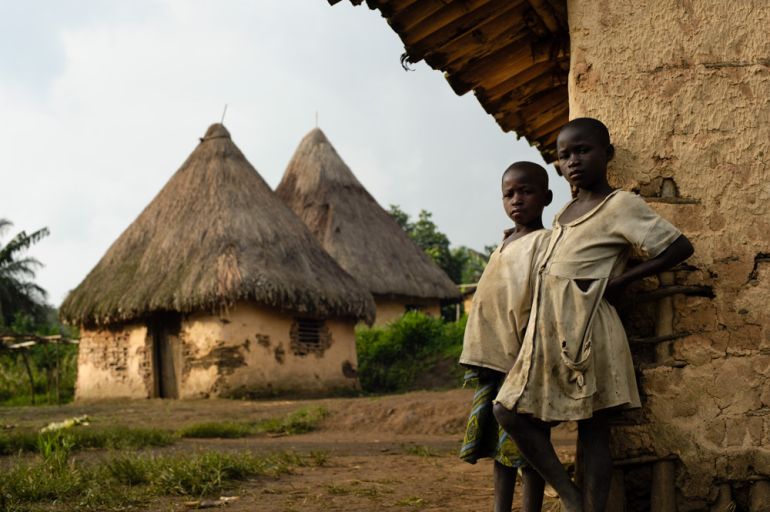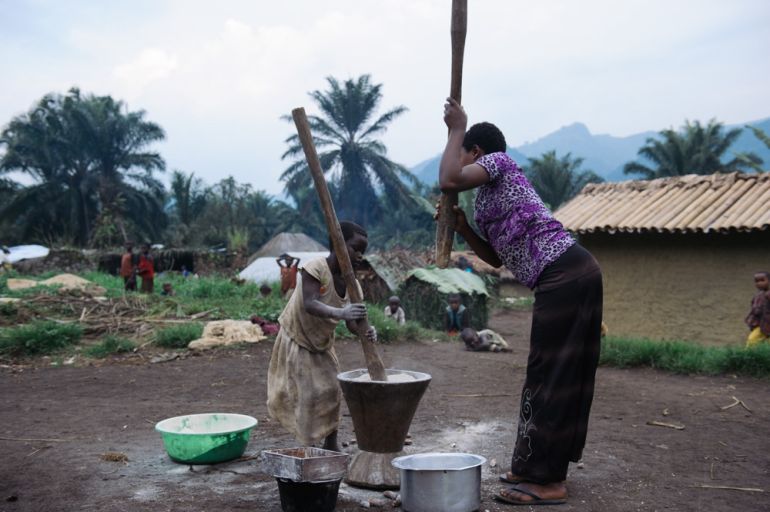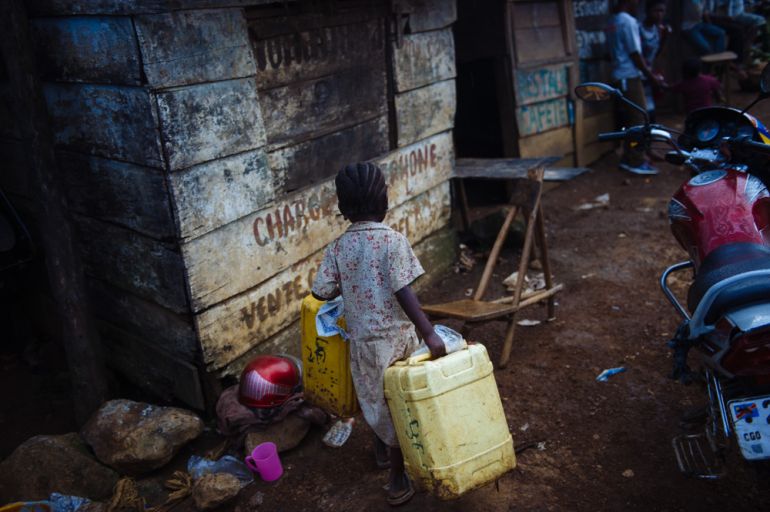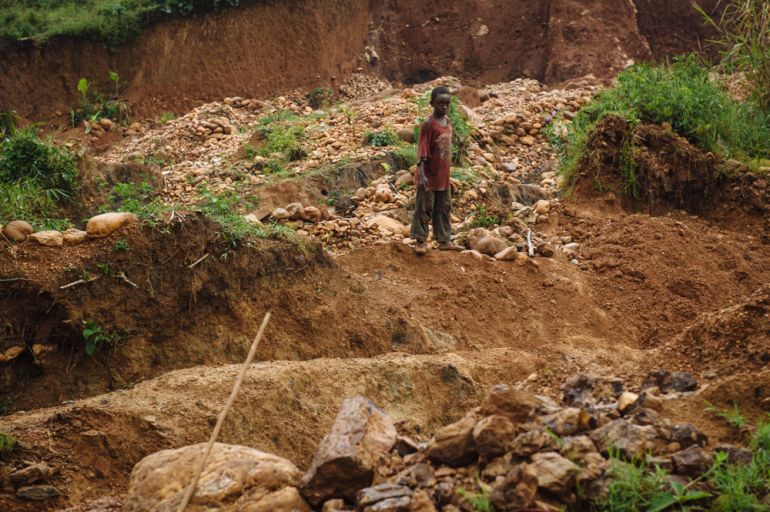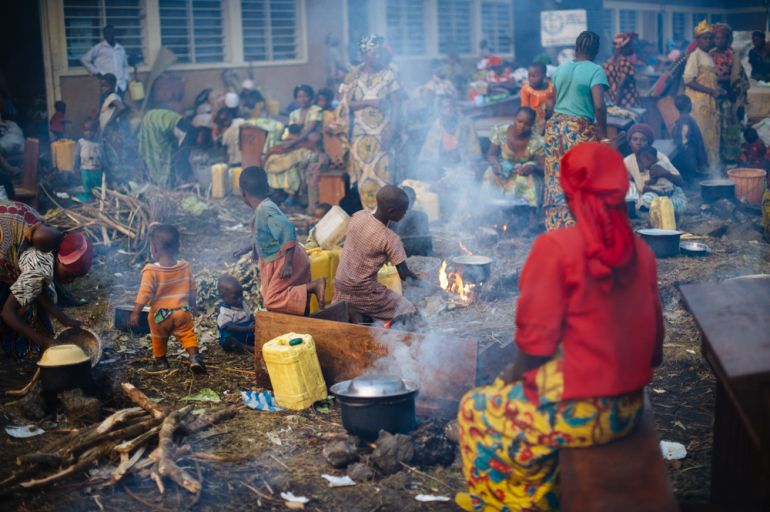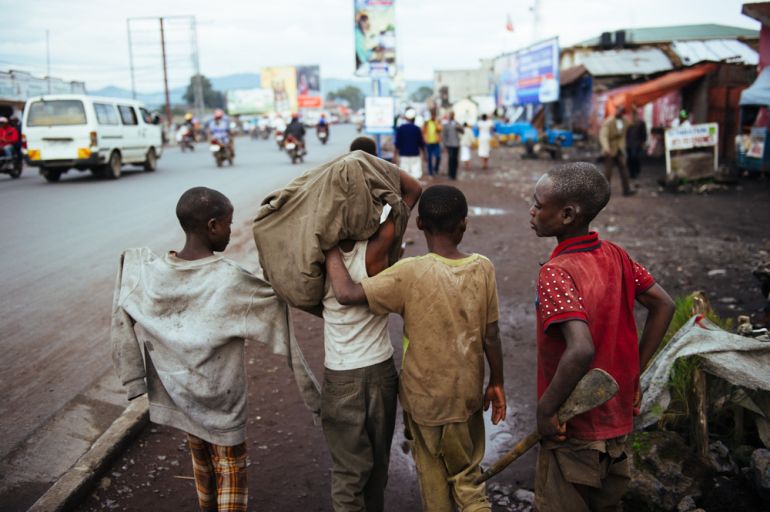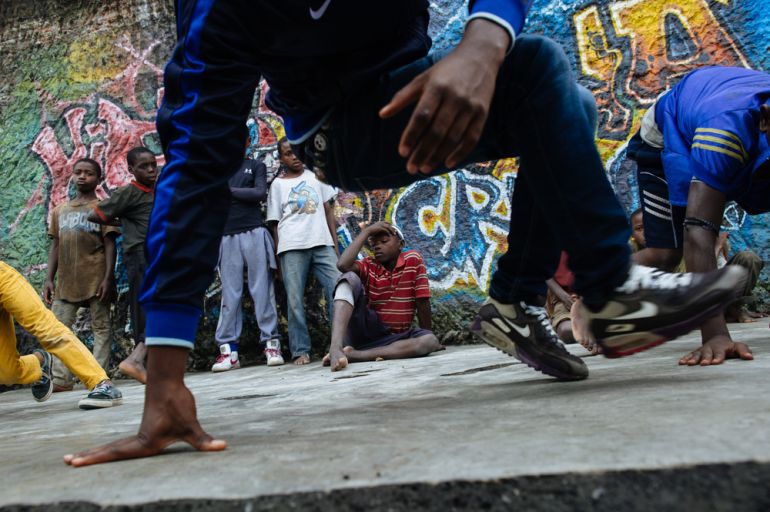In Pictures
Child labour traps DR Congo kids in cycle of poverty
Chronic underdevelopment and instability deprive children in DR Congo of an education, and a chance to beat poverty.
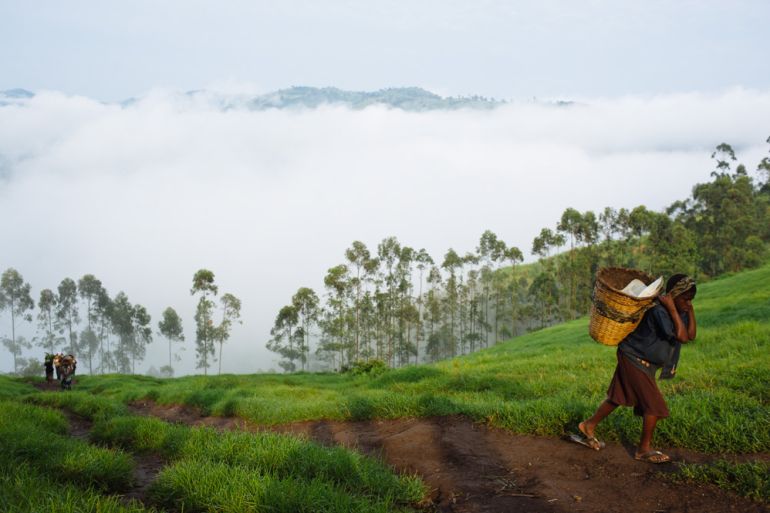
Goma, Democratic Republic of Congo – For many children in eastern Democratic Republic of Congo, the lack of development and chronic poverty afflicting the country create a barrier to education. Frequent outbreaks of conflict cause displacement, further depriving children of access to schooling.
Backbreaking chores are an integral part of daily life for thousands of children, helping their families with farming and fetching water, as well as working in more formal employment.
While some work can be positive in a child’s development, as defined by the International Labor Organization, absolute poverty stemming from decades of cyclical conflict can mean that the need for children to “help out” their parents can lock them into a cycle of hardship.
Empowering parents and children alike can help end this cycle of poverty.
